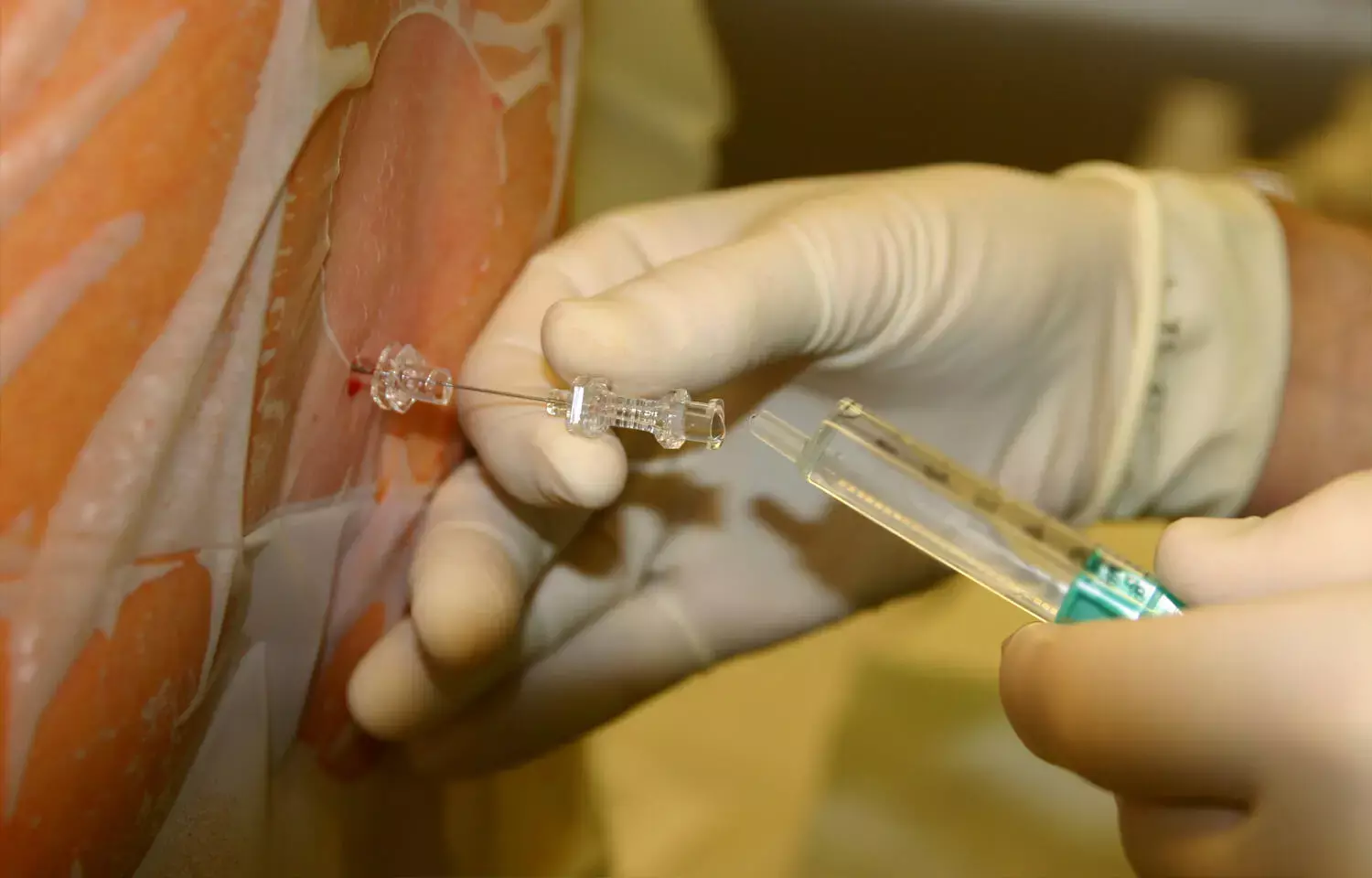- Home
- Medical news & Guidelines
- Anesthesiology
- Cardiology and CTVS
- Critical Care
- Dentistry
- Dermatology
- Diabetes and Endocrinology
- ENT
- Gastroenterology
- Medicine
- Nephrology
- Neurology
- Obstretics-Gynaecology
- Oncology
- Ophthalmology
- Orthopaedics
- Pediatrics-Neonatology
- Psychiatry
- Pulmonology
- Radiology
- Surgery
- Urology
- Laboratory Medicine
- Diet
- Nursing
- Paramedical
- Physiotherapy
- Health news
- Fact Check
- Bone Health Fact Check
- Brain Health Fact Check
- Cancer Related Fact Check
- Child Care Fact Check
- Dental and oral health fact check
- Diabetes and metabolic health fact check
- Diet and Nutrition Fact Check
- Eye and ENT Care Fact Check
- Fitness fact check
- Gut health fact check
- Heart health fact check
- Kidney health fact check
- Medical education fact check
- Men's health fact check
- Respiratory fact check
- Skin and hair care fact check
- Vaccine and Immunization fact check
- Women's health fact check
- AYUSH
- State News
- Andaman and Nicobar Islands
- Andhra Pradesh
- Arunachal Pradesh
- Assam
- Bihar
- Chandigarh
- Chattisgarh
- Dadra and Nagar Haveli
- Daman and Diu
- Delhi
- Goa
- Gujarat
- Haryana
- Himachal Pradesh
- Jammu & Kashmir
- Jharkhand
- Karnataka
- Kerala
- Ladakh
- Lakshadweep
- Madhya Pradesh
- Maharashtra
- Manipur
- Meghalaya
- Mizoram
- Nagaland
- Odisha
- Puducherry
- Punjab
- Rajasthan
- Sikkim
- Tamil Nadu
- Telangana
- Tripura
- Uttar Pradesh
- Uttrakhand
- West Bengal
- Medical Education
- Industry
Prilocaine Safe and Effective for spinal anaesthesia in day surgery settings

In a recent study, Andrea Luigi Ambrosoli and colleagues found the safety and effectiveness of spinal prilocaine for ambulatory surgical procedures involving the lower body. The findings were published in Journal of Anesthesia, Analgesia and Critical Care.
Spinal anesthesia has long been regarded as a safe and reliable option for surgeries involving the lower extremities. However, its application in the ambulatory setting necessitates drugs with fast onset and regression of the motor and sensory block. Enter prilocaine.
This study conducted in an Italian tertiary hospital analyzed data from 3291 procedures performed between 2011 and 2019 to assess the safety profile and incidence of complications associated with spinal prilocaine.
The findings suggests that prilocaine is a valid choice for day surgery procedures. Among the 3291 procedures analyzed, the majority included saphenectomy (28.5%), knee arthroscopy (26.8%), proctologic surgery (15.16%), and inguinal canal surgery (14.9%).
The study identified some anesthesia-related complications, albeit at low rates. Urinary retention affected 1.09% of patients, while lipotimia (a sudden fainting episode) occurred in 0.75%. Postoperative nausea was reported by 0.33% of patients, and arrhythmic events were rare, affecting only 0.18%. Additionally, a single case of persistent hypotension and two cases of persistent hypertension were reported.
Persistent motor or sensory blocks, which lasted longer than five hours, were experienced by seven patients. Only one patient (0.03%), who had undergone knee arthroscopy, reported pelvic pain lasting six hours, indicative of a transient neurological symptom.
Proctologic surgery was identified as a factor associated with unplanned admissions due to anesthesia-related complications. The odds of such admissions were 4.9 times higher for this specific surgical procedure.
The study suggests that spinal prilocaine is a safe and effective choice for a range of ambulatory procedures, with a low incidence of complications and the need for hospitalization. However, researchers underscore the importance of conducting further trials to investigate potential complications in the days following the procedure. Further research may continue to refine and expand our understanding of its application in this setting.
Source:
Ambrosoli, A. L., Di Carlo, S., Crespi, A., Severgnini, P., Fedele, L. L., Cofini, V., Necozione, S., & Musella, G. (2023). Safety and effectiveness of prilocaine for spinal anesthesia in day surgery setting: a retrospective study on a sample of 3291 patients. In Journal of Anesthesia, Analgesia and Critical Care (Vol. 3, Issue 1). Springer Science and Business Media LLC. https://doi.org/10.1186/s44158-023-00122-6
Neuroscience Masters graduate
Jacinthlyn Sylvia, a Neuroscience Master's graduate from Chennai has worked extensively in deciphering the neurobiology of cognition and motor control in aging. She also has spread-out exposure to Neurosurgery from her Bachelor’s. She is currently involved in active Neuro-Oncology research. She is an upcoming neuroscientist with a fiery passion for writing. Her news cover at Medical Dialogues feature recent discoveries and updates from the healthcare and biomedical research fields. She can be reached at editorial@medicaldialogues.in
Dr Kamal Kant Kohli-MBBS, DTCD- a chest specialist with more than 30 years of practice and a flair for writing clinical articles, Dr Kamal Kant Kohli joined Medical Dialogues as a Chief Editor of Medical News. Besides writing articles, as an editor, he proofreads and verifies all the medical content published on Medical Dialogues including those coming from journals, studies,medical conferences,guidelines etc. Email: drkohli@medicaldialogues.in. Contact no. 011-43720751


